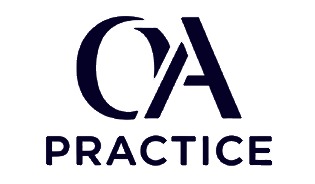D027 Advanced Pathopharmacological Foundations - Set 2 - Part 1
Test your knowledge of technical writing concepts with these practice questions. Each question includes detailed explanations to help you understand the correct answers.
Question 1: A patient with Crohn's disease experiences intestinal bleeding and abdominal pain that worsens after eating. Which diagnostic finding on biopsy would confirm this inflammatory bowel disease diagnosis?
Question 2: During asthma exacerbation, a teenager's growth concerns prevent stepping up to medium-dose inhaled corticosteroids. Which alternative medication class maintains effectiveness while avoiding growth impacts?
Question 3: A patient with myasthenia gravis undergoes Tensilon testing for diagnosis. What medication must be prepared alongside edrophonium to manage potential adverse reactions during this test?
Question 4: In Alzheimer's disease management, memantine works differently from cholinesterase inhibitors. Which neurotransmitter system does memantine regulate to improve cognitive function in severe cases?
Question 5: A pregnant patient with UTI needs antibiotic treatment. Which medication provides safe one-time dosing without risk to the developing fetus?
Question 6: During vaso-occlusive sickle cell crisis, what intervention takes priority before administering pain medications to address the underlying pathophysiology?
Question 7: A COPD patient on LABA plus LAMA continues having exacerbations. Which medication class should be added for patients with chronic bronchitis phenotype?
Question 8: In celiac disease, which antibody test combined with genetic markers provides the most specific diagnostic information for this autoimmune condition?
Question 9: A diabetic patient taking metformin starts experiencing lactic acidosis symptoms. Which herbal supplement interaction most likely contributed to this dangerous metabolic complication?
Question 10: During thyroid storm management, which cardiovascular symptom control medication must be given to prevent cardiac complications while treating hyperthyroidism?
Question 11: A patient with depression on SSRI therapy cannot stop medications suddenly. What withdrawal syndrome risk necessitates gradual tapering of these antidepressants?
Question 12: In color blindness genetics, why are males more frequently affected than females by this X-linked recessive condition?
Question 13: A patient with parathyroid adenoma has elevated calcium levels. Which medication mimics calcium to reduce parathyroid hormone production without surgery?
Question 14: During pleural effusion treatment, a patient with parapneumonic effusion requires specific therapy. Which medication class addresses the underlying cause of this condition?
Question 15: A schizophrenia patient on second-generation antipsychotics develops metabolic syndrome. Which specific medication side effect pattern characterizes this drug class?
Question 16: In pneumothorax assessment, what physical examination finding helps differentiate air accumulation from other causes of decreased breath sounds?
Question 17: A patient with chronic kidney disease stage four needs hypertension management. What medication adjustment becomes necessary at this advanced kidney dysfunction stage?
Question 18: During influenza treatment, antiviral medications work best within a specific timeframe. What is the optimal window for starting antiviral therapy after symptom onset?
Question 19: A patient with generalized anxiety disorder experiences persistent worry. How long must excessive worrying persist to meet diagnostic criteria for this condition?
Question 20: In beta thalassemia management, why are iron supplements contraindicated despite the patient having severe anemia requiring transfusions?
Need Guaranteed Results?
Our exam support service guarantees you'll pass your OA on the first attempt. Pay only after you pass!
Get Exam Support